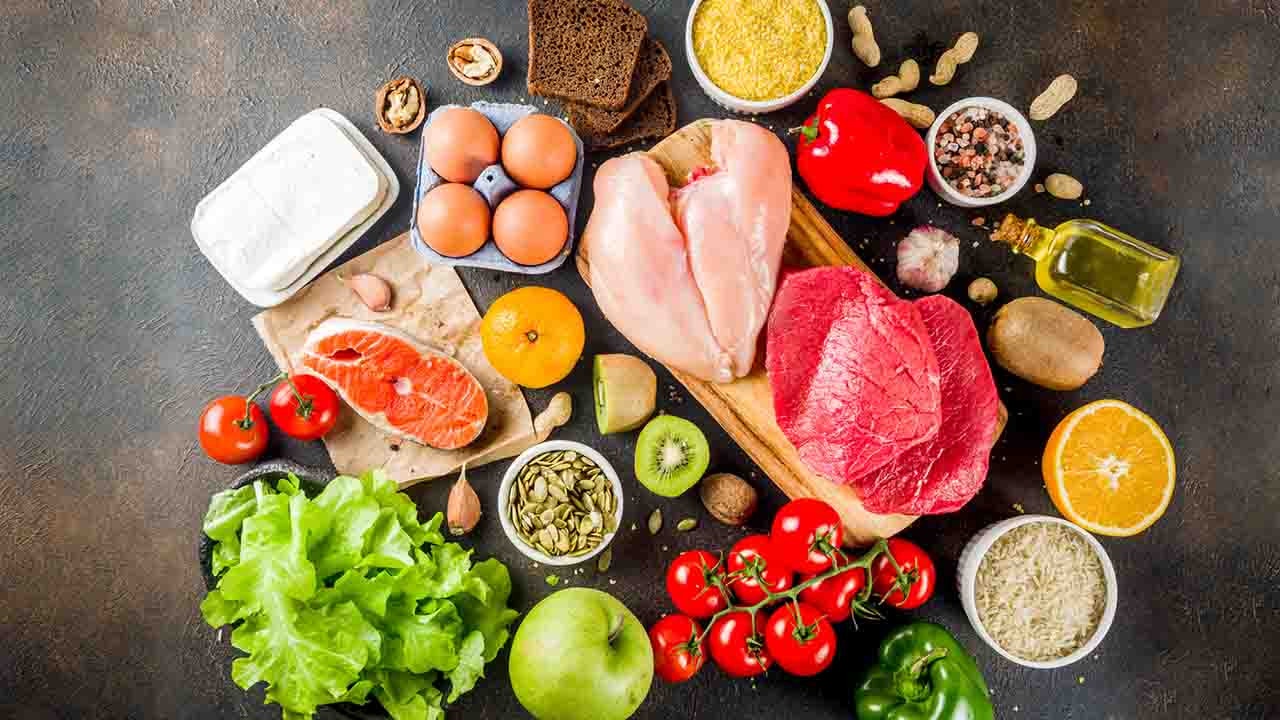What Are Whole Foods?

One of the key foundations for our nutrition recommendations is to eat a diet that mostly consists of whole foods, but if that's not a term you've heard of before, you may be wondering what does that actually mean?
What are whole foods?
Whole foods have been refined or processed as little as possible. For example, if you think about an apple or tomato you buy at the supermarket, it's in the same state as when it was harvested - this is a whole food.
Pre-packaged crackers will typically have been made using multiple ingredients and may include things such as flour (milled/ground), stabilisers, flavour enhancers; potentially ingredients you may not even recognise on the nutrition label.
Some examples of whole foods include:
- Vegetables (i.e. broccoli, carrots, kumara, potatoes, green salad leaves)
- Fruit (i.e. apples, oranges, bananas, grapes, blueberries)
- Lean proteins (i.e. chicken, fish, pork, lamb, beef, tofu, falafel, hummus, lentils, eggs)
- Nuts/seeds (i.e. almonds, cashews, pumpkin seeds, hazelnuts, peanuts)
- Grains (i.e. oats, quinoa, rice, grainy breads, corn, buckwheat)
For the majority of these foods, if you were going to put an ingredients label on them they would only list one thing.
A healthy, balanced diet will mostly consist of these foods, and may include smaller amounts of 'extras' such as other ingredients to turn them into meals, and things such as dairy products (milk, Greek yoghurt etc.).
Note: In the context of our nutrition guidelines, this doesn't necessarily mean not refined/processed at all - foods like tofu and hummus undergo some processing and assembly to create the products.
Why 'mostly' whole foods and not 'all' whole foods?
Diets that completely remove foods from your everyday life are a form of deprivation; yes, eating whole foods all the time would be more nutritious and better for you, but the reality of it is that sometimes you might want to share a salami pizza with friends on a Friday night. You might want to have a cupcake your kids baked in the weekend. You might want some lollies on a family trip to the movies. Or you might need to use non-whole food ingredients to cook a special meal that you love.
Also, for convenience reasons sometimes it's not practical to make everything you eat from scratch - for example, tofu, bread, pasta and dairy products. If you have the time and capacity to do so, great, but if not this isn't something to get too fussy over.
As soon as you decide you're eating 'all' whole foods, it's setting you up to associate those special occasions with feelings of guilt, being off the bandwagon, frustration, and a raft of other negative emotions that we really just don't need.
Sure those foods probably won't help your efforts to be healthier, but as occasional treats they're not going to undo the rest of your nutrition habits if you have been consistent with eating mostly whole foods the rest of the time. This way of thinking leads to a healthier emotional relationship with food.
Food doesn't have virtues - different foods aren't definitively good or bad, they are just choices on a sliding scale. This is also why we prefer not to refer to this as 'clean eating'. A flexible diet should make allowances for these special occasions and generally leave you feeling positive, satisfied, full, healthy and energetic on a daily basis.
Image / DepositPhotos









